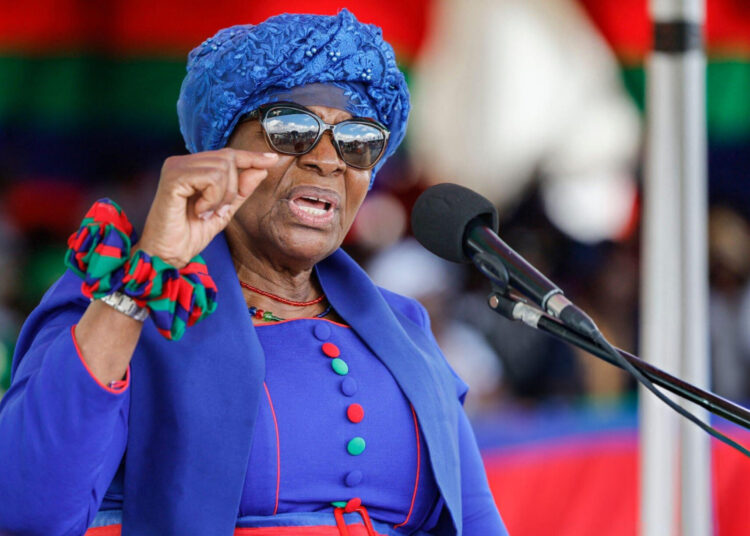Windhoek, Namibia— In a move hailed as historic by some education experts and cautiously welcomed by others, Namibia’s President Netumbo Nandi-Ndaitwah announced that public university and vocational education will be entirely subsidized by the government from 2026, effectively ending tuition and registration fees at all state institutions of higher learning.
Delivering her first State of the Nation Address in late April since taking office last month, Nandi-Ndaitwah told Parliament: “I am pleased to announce that from the next academic year, commencing 2026, tertiary education will become 100% subsidized by the government.”
The announcement represents the most significant expansion of the country’s education policy since free primary and secondary education was introduced. “We have heard your cries,” she said, addressing the nation’s youth. “This policy is aimed at improving opportunities for young people amid problems of youth unemployment and poverty.”
Namibia, a sparsely populated country of just over 3 million, has a youthful demographic: approximately 2.1 million (70%) Namibians are under the age of 35, according to official figures. Youth unemployment remains persistently high, with estimates placing it at over 40 percent. The move to subsidize higher education is intended to remove what many see as one of the last major structural barriers to access for poor and working-class families.
Under the plan, the two state-run universities — the University of Namibia (UNAM) and the Namibia University of Science and Technology (NUST) — will no longer charge tuition or registration fees. In addition, all seven of the country’s government-run vocational training centres will be covered. Parents will, however, still have to bear the cost of uniforms, books, hostel fees, and stationery.
While the policy has been broadly welcomed, questions remain about its long-term fiscal sustainability. According to the Ministry of Higher Education, the reform will be rolled out gradually, with funds redirected from the existing Namibia Student Financial Assistance Fund (NSFAF), which will continue to offer non-tuition support to eligible students.
The new policy will not cover privately run institutions. The Ministry of Higher Education, Technology and Innovation is expected to release implementation guidelines in the coming months, including how funding will be distributed across the institutions and what support structures will accompany the subsidy.
Education experts welcomed the announcement but urged the government to ensure that quality and capacity were not compromised. “While tuition-free education expands access, the system must be prepared for increased enrolment,” said Dr. Veronica Theron, senior policy specialist in the Office of the First Lady, speaking at a policy forum earlier this year. “This includes investing in infrastructure, staffing, and curriculum delivery.”
The government has not yet released detailed fiscal projections for the reform, though analysts noted that Namibia’s education budget for the 2024/25 financial year already accounts for over 20 per cent of total expenditure, one of the highest proportions in Africa.
Nandi-Ndaitwah, who assumed office in March following the death of President Hage Geingob, is the first woman to lead Namibia. The announcement marks her administration’s first major domestic policy initiative and appears designed, in part, to shore up political capital ahead of the 2025 general elections. Her ruling SWAPO party has faced growing discontent among young voters, many of whom have grown impatient with the pace of economic reform and job creation.
Whether the policy will succeed in turning that tide remains to be seen. But for thousands of Namibian families who have long struggled to afford university tuition, the President’s pledge marks a turning point.








